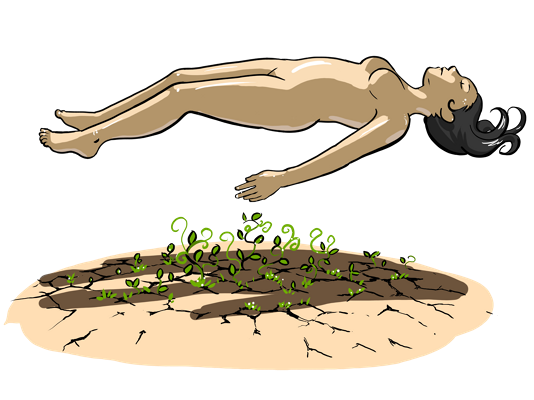Stephen Curry carries the record for most 3-point field goals made (3PM) in the NBA and attributes much of his success to his practice in float therapy. Along with elaborate dribbling drills, Curry is not afraid to experiment with innovative training technologies. In 2015, the Warrior’s new head of physical performance and sports science, Lachlan Penfold, suggested the implementation of floatation therapy for preparation, performance, and injury management…
Read MoreMany people float to find their baseline - whether that be for general relaxation, "me" time (away from kids, partners, work, friends and family), basic physical recovery, or even just paying off some sleep debt. For others, though, floating as a practice has more of a pointed goal to it – something specific that you’re looking to achieve, whether it be physical, emotional, intellectual, or spiritual. Since one of the most fascinating things about floating is how versatile it can be, and how it appeals to people in so many different walks of life, we wanted to run through some different ways floating is used for self-improvement.
Read MoreIt's the holiday season. You've booked your time off from work, planned where you're going (or who's coming to you) and you’re excited to finally reconnect with loved ones after an unusually busy year. Holidays are meant to be a break from the craziness – they give us a chance to enjoy special moments and make memories with the people we love.
Sadly, actually fulfilling that yearning for a few nights where “all is calm and all is bright” can be quite stressful. Misbehaving children, older relatives that need extra care, bickering couples, organizing transport and accommodation, spending time to find the right gifts, catering for dietary requirements – with multiple distractions, time can easily feel like it's running away. This was supposed to be a holiday right?
Read MoreYou’ve probably heard of our fight or flight response – when we’re presented with stressful or threatening situations (like being chased by a hippopotamus), our body’s autonomic nervous system responds by preparing for action. Our heart rate increases, our breathing picks up, and blood flows from our core out to our limbs (along with a lot of other changes, all focused on helping us get ready to defend ourselves or to get out of there as swiftly as possible).
Read MoreGeneralized Anxiety is a psychological phenomenon that’s essentially written in our genes. From our humble origins, anxiety has served as a protective mechanism that alerted us to potential dangers lurking behind the bush.
Today we often refer to its effects as a vestigial feature, not yet erased by the forward march of evolution. However, anxiety does not affect us all equally. In fact, its occurrence rates can differ greatly by country, region, race, age, and gender. As a result, effective treatment measures can be hard to determine and implement on a wide-scale level.
Anxiety is a feature of the human psyche and not a “bug.” But given prolonged states of anxiety, people can suffer many awful side effects, such as depression and autoimmune malfunction. The modern world subjects us to anxiety at every turn. Think - making rent, getting that promotion, the effects of mistakenly thinking that everyone you know is doing better than you based on constantly watching social media, etc.
Read MoreSpending time in an isolation tank is a great way to practice being present, removing external distractions about the past, worries about the future, and escaping your stress. In a word, it’s a great place to be mindful.
Over the last few years, mindfulness has become a popular tool for improving general mental wellness. When mental health professionals talk about mindfulness, they’re referring to a state of “moment-to-moment non-judgmental awareness.”
Studies have shown mindfulness offers remarkable results in dealing with stress-related conditions such as anxiety disorders, PTSD, and depression. The results have been so profound, in fact, that they were considered extremely unlikely from a non-invasive treatment (at least by the standards of Western medicine). As these problems become more ubiquitous, non-traditional methods for dealing with it also become more common…
Read MoreNo matter what your New Year’s Resolution may be, floating can be a really helpful tool in getting there. And even if you’re not sure what goals you’d like to focus on in the New Year, a float tank can be a great place to think about it.
Read MoreSerenity. That sounds nice, doesn’t it?
With 2020 not letting up as it careens to a close, serenity can seem like nothing but an out-of-reach pipedream – both in our own lives and in the world as a whole. It’s difficult to relax and focus on the present when so much of even the immediate future is uncertain. In times like these, though, fostering that sense of mindfulness and serenity is perhaps one of the most important things that we can do.
Read More







